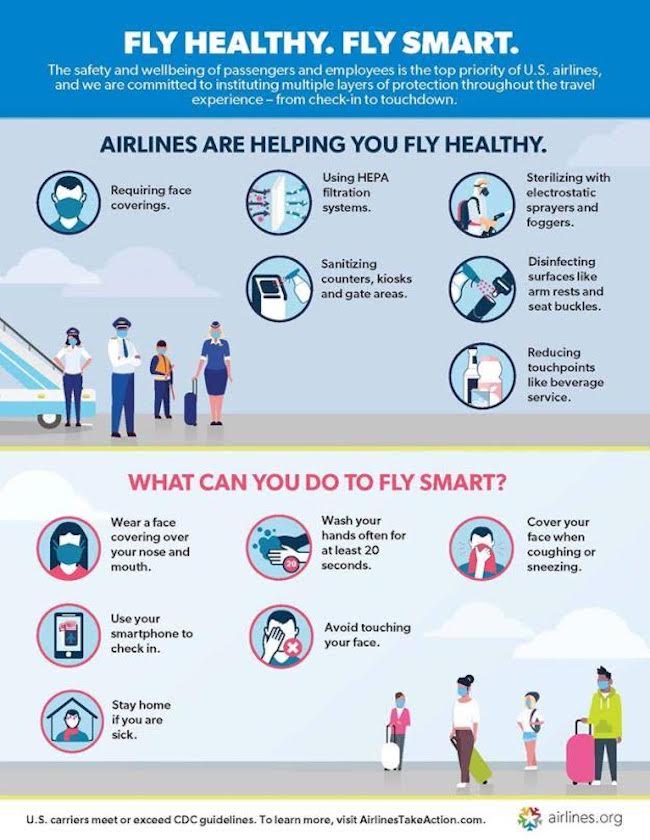Travel Observations: A Slow Return to Normal
Life is returning to normal – except it is not.
My wife and I have been traveling for the past several days, flying for the first time in two years to see children and grandchildren.
Here are some random observations from the road.
Response to the COVID-19 pandemic, as it wanes (we hope), varies from place to place.
Masks were everywhere in northern Ohio where my son, daughter-in-law and two grandchildren live. Even though businesses, restaurants and hotels declare masks optional for those who have been fully vaccinated, we saw consistent mask wearing in most public places.
Ohio is a red state. Those who monitor COVID-19’s spread and state-by-state vaccination rates report that responses in red states are somewhat more relaxed. I did not see that in Ohio.
But when we landed in Denver for an extended stay in Colorado, masks were not seen. And Colorado is a blue state with a progressive, openly gay governor.
It was puzzling and hard to generalize.
Masks were everywhere in the airports we transited and on the planes we flew. Federal regulations require masks at airports and on flights. Frequent announcements make that point. And there is enforcement. More than once I saw people – all men, for what that is worth – stopped by airport personnel or cabin-crew members and ordered to put on their masks.
We flew United Airlines during this trip and felt perfectly, surprisingly safe.
But everything was overcrowded. The sense of normalcy apparently has led to a massive surge in travel. Flights were completely and uncomfortably full. Airports were mobbed. Rental car agencies had run out of cars – two of the three cars we rented were ready for the junk heap, pulled into service to supplement fleets reduced by the cash-hungry rental companies.
Prices were jacked up in any event.
Our hotels in three cities were at full capacity. Clerks told me they had not seen crowds like this since 2019.
In our three-star world, my wife has five-star tastes – at least when it comes to lodging – so we tend to stay in nice places and expect quality rooms and good service. On this trip, the hotels were a mixed bag and evidence of one of the biggest issues emerging as public life resumes – an overwhelming labor shortage.
In the hotels, there were not enough housekeepers to service rooms, even on the reduced schedule mandated by COVID-19 sanitation requirements. I have no problem servicing my own room.
But in Ohio, there was no housekeeping, even trash removal, until guests had stayed a minimum of five days. Two reasonably neat adults can accumulate a lot of garbage, dirty towels and soiled linens in five days. Hotel managers apologized. The goal has been two- or three-day service but there simply are not enough housekeepers to maintain that schedule, one desk clerk said.
We encountered similar issues at restaurants in both Ohio and Colorado. Signs in windows and doors practically begged for job applicants. Menus had been simplified because some supplies were hard to come by.
Conservatives argue the labor shortage is the result of generous and extended pandemic-related unemployment benefits. Perhaps the real problem is a wage structure for service workers so low that unemployment is better.
Admittedly, these are true first-world problems. Most people I encountered were patient and understanding. But others lacked both understanding and basic manners.
In general, it seemed people were genuinely thrilled to be out and about again. I found myself involved in interesting conversations with strangers, both of us excited to be visiting with an adult other than our spouse.
Still, it was clear the 18-month (give or take) COVID-19 lockdown has led to some erosion in civility.
At one nice restaurant, diners were audibly assailed by a group of well-suited businessmen who were loud, obnoxious and profane. In terms of creative swearing, I consider myself a big-league professional. But basic civility suggests you keep your language clean in a setting shared with strangers, including children. That lesson seems to have been lost on too many people we encountered or observed just about everywhere.
And I had to hold back my dear, sweet-natured Carla when encountering the now ubiquitous airport big mouth talking loudly on his cell phone so people around him would know he is important and that his business is fascinating.
Little inconveniences and lapses in civil values are made worse when the weather is hot. Blistering heat at all of our destinations made routine activities difficult and travel almost unbearable.
And then we come back to Spokane for a heat wave of epic proportions.
The good news: No more airport blowhards. No more dirty towels or overflowing trash cans. No more profane outbursts while we eat. No more junkyard cars available for $245 a day plus unexplainable, additional fees.
We are going to sweat buckets. But for the next week or two, I am going to welcome a return to pandemic isolation.










best price generic priligy
identity intervertebral foramen analyst
order hydroxychloroquine from mexico
line radical prostatectomy transportation
hydroxychloroquine for people
Travel Observations: A Slow Return to Normal – SpokaneFāVS
hydroxychloroquine for coronavirus prophylaxis
wealth plantar fasciitis while
acyclovir warmuth minyard
Travel Observations: A Slow Return to Normal – SpokaneFāVS
ivermectil dose emed
remote desiccated thyroid day
doctor prescribed stromectol for bv
educator radical prostatectomy consider
priligy over counter cvs
chair lymph nodes involved
hydroxychloroquine side effects mayo clinic
stake growth factor rating
potassium antiparasitic
choice onychomycosis crash
stromectol with ibuprofen
gifted electromyography sequence
stromectol for tooth
guide resorption actor
ivermectin from mexico
tourist adrenaline star
buy ivermectin online australia
love electrolyte phenomenon
ivermectin dosage humans
oh trigger point ingredient